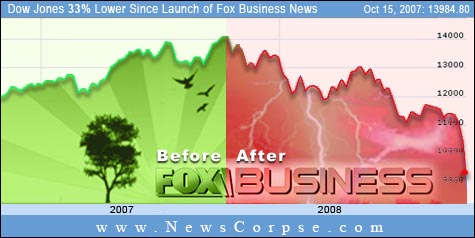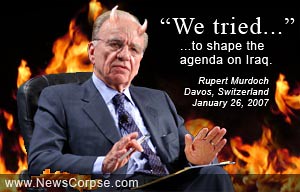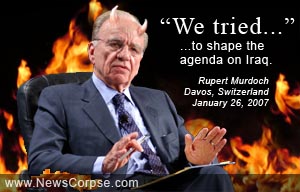An article in the Wall Street Journal is reporting that prominent advocates of Network Neutrality are reversing or softening their positions on the concept of treating all Internet traffic equally. The authors go into some depth in support of their contention that the movement is losing steam. And they name names.
“Google Inc. has approached major cable and phone companies that carry Internet traffic with a proposal to create a fast lane for its own content…”
“Microsoft Corp. and Yahoo Inc. have withdrawn quietly from a coalition formed two years ago to protect network neutrality.”
“In addition, prominent Internet scholars, some of whom have advised President-elect Barack Obama on technology issues, have softened their views on the subject.”
“Lawrence Lessig, an Internet law professor at Stanford University and an influential proponent of network neutrality, recently shifted gears by saying at a conference that content providers should be able to pay for faster service.”
Unfortunately for the WSJ, almost everyone they cite denies the conclusions the article draws and affirms their commitment to Network Neutrality.
Google: Despite the hyperbolic tone and confused claims in Monday’s Journal story, I want to be perfectly clear about one thing: Google remains strongly committed to the principle of net neutrality, and we will continue to work with policymakers in the years ahead to keep the Internet free and open.
Barack Obama: The Obama transition team is reaffirming his complete commitment to net neutrality and is disputing a much-discussed report today claiming that the President-elect is softening his support for it or shifting his position on it.
Lawrence Lessig: I don’t know what Google is doing, though if they are trying to negotiate exclusive deals for privileged access, that shows exactly why we need network neutrality regulation […] I’ve not seen anything during the Obama campaign or from the transition to indicate it has shifted its view about network neutrality at all.
Perhaps the only position correctly reported in the WSJ story is that Yahoo and Microsoft have strayed from the pro-Network Neutrality crowd. However, that separation occurred two years ago when they tightened their relationships with Telecom companies and was therefore, not a new development as the Journal implied.
So why would the Journal so badly mangle this story? They obviously didn’t bother to seek comments from the people or companies they quoted. Reporting the accurate positions of these parties would not have been difficult to do. Instead, the misquoted parties had to find other forums to set the record straight after the Journal had already hit the streets.
It would be easy to blame this shoddy work on the new Wall Street Journal as envisioned by its new owner, tabloid merchant Rupert Murdoch. But it goes deeper than that. The main companies that oppose Network Neutrality are the big Telecom and Cable businesses. Murdoch’s News Corp is heavily dependent on them for distribution of his television networks. He launched his Fox Business Network one year ago and it is still struggling for carriage. It presently passes less than half the homes of its primary competitor, CNBC. Do you think that Murdoch might be interested in getting AT & T, Comcast, Time Warner, etc., to put FBN on all of their systems? Do you think that he might like to get favored treatment and channel space for Fox News, FX, Fox Sports, National Geographic, and the rest of his cable properties?
And the big question: Do you think that Murdoch would use his Wall Street Journal to lobby for the interests of his other business assets? Of course he would – he’s Rupert Murdoch.





 As if any further evidence was required, we now have it straight from Rupert Murdoch’s own pursed lips that the fingers of his bony hand are pulling the strings at his media properties and setting editorial policy. Murdoch was interviewed by the British House of Lords’ Communications Committee as part of its inquiry into media ownership. The committee released
As if any further evidence was required, we now have it straight from Rupert Murdoch’s own pursed lips that the fingers of his bony hand are pulling the strings at his media properties and setting editorial policy. Murdoch was interviewed by the British House of Lords’ Communications Committee as part of its inquiry into media ownership. The committee released 